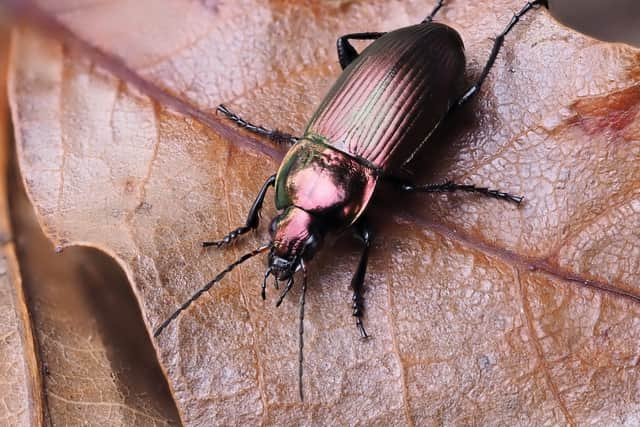Biodiversity loss: Native insects are dying out en masse and being replaced by invaders - study finds
and live on Freeview channel 276
Some of our most common insects appear to be rapidly dying off, a new study has warned - and invasive species are rushing in to take their place.
The new piece of research, published on Wednesday (20 November) in science journal Nature, analysed long-term trends of land-based insects like beetles, butterflies and grasshoppers, and found worrying declines - largely driven by losses of previously more common species. While scientists have previously noted dramatic declines in the total number of insects in many parts of the world, little was known about general trends among locally rare and abundant species over long periods.
Advertisement
Hide AdAdvertisement
Hide AdThe team, from the German Centre for Integrative Biodiversity Research, compiled a database on insect communities using data collected over periods ranging from nine to 64 years, as part of 106 different studies. From the updated database, the researchers found that on the whole, land-based insects were declining by 1.5% each year. They also compared species across different abundance categories, and found the ones that were the most common to begin with showed the strongest average decline – around 8% annually.


But the losses of previously dominant species were not being compensated for by rises in other local species, which the team said could have far-reaching implications - with common insects a "staple" food source for birds and other insect-eating animals. Lead author Dr Roel van Klink told SWNS: “Food webs must already be rewiring substantially in response to the decline of the most common species. These species are super important for all kinds of other organisms and for the overall functioning of the ecosystem."
Less naturally abundant insects were also taking losses, and the study found a smaller drop of 0.3% annually in the the total number of species. The researchers say the decline indicates that some rare species are going locally extinct.
But coming out on top are new arrivals who manage to successfully establish themselves somewhere new, according to the findings. Dr van Link said while most of the new arrivals stay locally rare and replace other formerly rare insects, occasionally they become very common in their new habitat. One example is the invasive Asian lady beetle, which is now common throughout Europe, the Americas and South Africa.
Advertisement
Hide AdAdvertisement
Hide AdSwarms of non-native ladybirds have also been reported in homes across the UK this year, as the weather turned cold and temperatures plummeted. One woman in Cambridgeshire was forced to flee her home, as thousands of the tiny insects forced their way inside.
Although the study did not explicitly investigate possible causes, the researchers believe that the declines are likely linked to recent human-related impacts, such as climate change and urbanisation, which are considered major drivers of biodiversity loss. Study co-author Professor Jonathan Chase said: “Insects seem to be taking a heavier hit than many other species as humans continue to dominate the planet. Other studies, including those our team has worked on, have not found such diversity declines at local scales from many other groups of animals and plants”.
This is not the first time the impacts of environmental issues like climate change on insects have been noted. This year's 2023 Big Butterfly Count survey found climate change was even having an impact on the UK's garden butterflies, with more red admirals seen than ever before - likely due to the warmer weather meaning more of the insects were skipping winter migration.
Some Brits were still spotting butterflies in their gardens in mid-November, but wildlife experts saying the sightings were “very worrying”, with the insects supposed to be hibernating.
Comment Guidelines
National World encourages reader discussion on our stories. User feedback, insights and back-and-forth exchanges add a rich layer of context to reporting. Please review our Community Guidelines before commenting.
